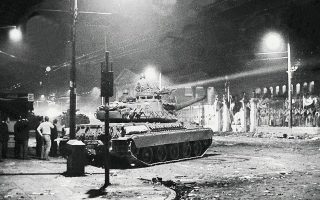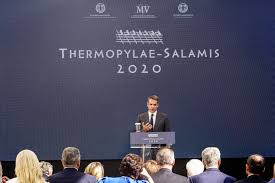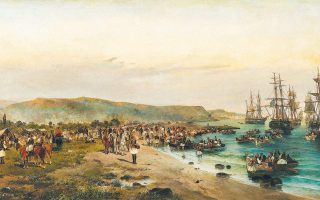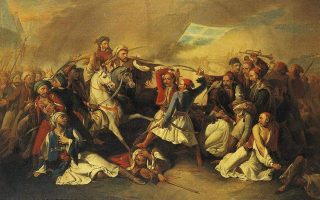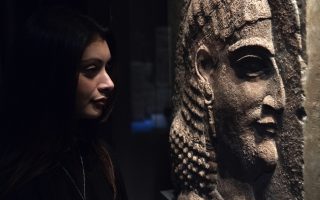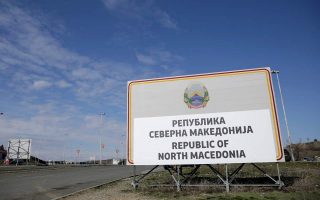Remember 1989, when Central and East Europe nations overthrew communism
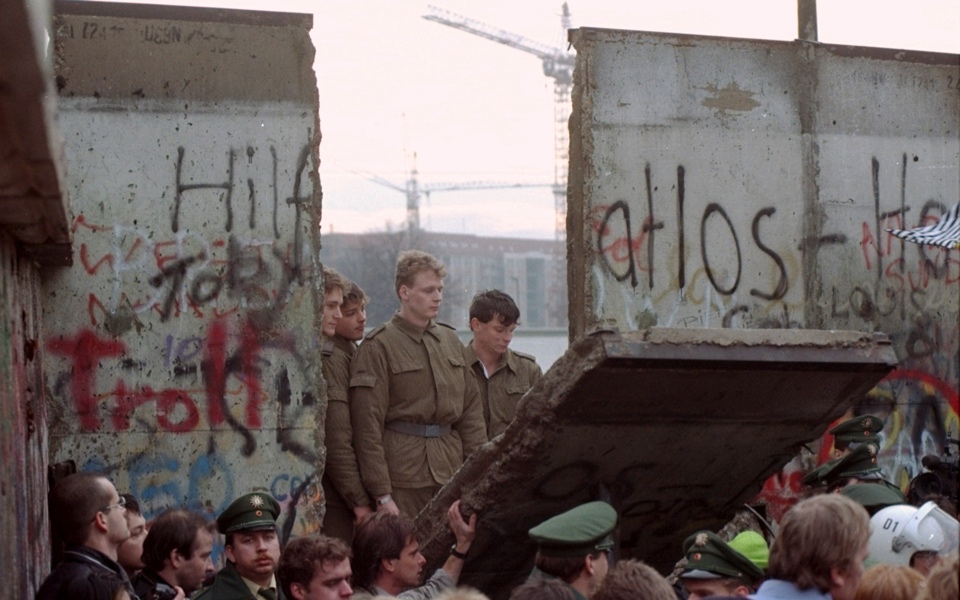
On March 5, 1946, in his speech at Fulton, Missouri, British Prime Minister Winston Churchill used the metaphor of the “Iron Curtain,” “descending from Szczecin in the Baltic to Trieste in the Adriatic,” to define the process of political division that spread across Europe after World War II. This metaphor, along with the Berlin Wall, become the symbol of the political, economic and social divisions in Europe for almost 45 years. The countries “behind that line,” which under the provisions of Yalta in 1945 were subordinated to the USSR as its satellites had been destined to follow a completely different historical path from the rest of Europe.
Our nations have never surrendered to the political destiny that was imposed upon them. Strong opposition to the communist system started to emerge and protests began as early as the 1950s and 60s. In Poland the first mass demonstrations took place in June 1956 in Poznan. The 1956 Hungarian Revolution, which was an attempt of the Hungarian people to free themselves from Soviet domination and break the monopoly of the communist party, began in October with a rally of students in Budapest as a sign of solidarity with Poland. It was bloodily suppressed by the Red Army. Czechoslovak reforms of the Prague Spring in 1968 were destroyed by the Soviet troops and forces of the other Warsaw Pact countries. The strikes and demonstrations of the Polish shipyard workers in Gdansk, Gdynia and Szczecin in December 1970 were bloodily suppressed. The same occurred in Radom and Warsaw in 1976. The culmination of all these protests was the massive outbreak of strikes in Poland in the summer of 1980 resulting in the establishment of the “Solidarity” Independent Trade Union, the first of its kind in the communist countries.
The democratic breakthrough started with the first partially free elections to the Polish Sejm on June 4, 1989. Its consequence was the appointment of the first non-communist prime minister, an activist of the democratic opposition Tadeusz Mazowiecki, who formed a government based on a coalition of all parliamentary forces. Democracy in Poland had become a reality. In November 1990, presidential elections were won by Lech Walesa, the legendary leader of Solidarity. The process of regaining independence and the re-establishment of democracy symbolically ended with the withdrawal of the last units of the Soviet army from Poland in 1993.
In May 1989, the removal of fences on the border between Hungary and Austria began. The border was completely opened in September, allowing thousands of East German citizens to flee to the Federal Republic of Germany via Hungary. A mass demonstration in East Germany was held in autumn of 1989, which ultimately led to the fall of the Berlin Wall on November 9, 1989.
The Candle Demonstration organized by Roman Catholic dissent groups on March 25, 1988 in Bratislava, the capital of Slovakia, was the first mass demonstration since 1969 against the communist regime in Czechoslovakia. The demonstration was brutally suppressed by the police and caused widespread outrage in Slovakia with the ball rolling toward real, sustained popular resistance to the communist regime. It was the beginning of a popular uprising that ultimately led to the Velvet Revolution, from November 17 to December 29, 1989.
In Prague on November 17, 1989, thousands of students went out and demonstrated in the center. The police suppressed a peaceful student demonstration. The event sparked protests across the whole country over the coming weeks. In response, the Communist Party of Czechoslovakia announced on November 28 that it would relinquish power and end the one-party system. Barbed wire and other obstructions were removed from the borders with West Germany and Austria in early December. On December 10, Slovak Communist President Gustav Husak appointed the first largely non-communist government in Czechoslovakia and resigned. Alexander Dubcek, leader of the Prague Spring, was elected speaker of the Federal Parliament on 28 December and Vaclav Havel the president of Czechoslovakia on December 29, 1989. Free elections were held in June 1990, in which the Citizens’ Forum (in the Czech Republic) and the Society Against Violence (in Slovakia) won.
In Hungary, the process of political transformation began on June 16, 1989, when 250,000 people attended the solemn reburial of Imre Nagy, prime minister of Hungary at the time of the 1956 Revolution. After the Soviet-imposed end of the revolution, Nagy was taken to custody, and was tried and executed for treason. On July 6, 1989, he was formally rehabilitated. Some consider it symbolic that on the very same day, the long-time communist leader of Hungary, Janos Kadar, died. The declaration of the Third Hungarian Republic was proclaimed on October 23, 1989, on the anniversary of the outbreak of the 1956 revolution. The first free parliamentary elections were held on March 25, 1990, won by the Hungarian Democratic Forum (MDF). The first political leaders of the newly democratic Hungary were Jozsef Antall as prime minister and Arpad Goncz as president.
The fall of the Berlin Wall marked the end of the long-lasting rule of Todor Zhivkov in Bulgaria. Faced with domestic pressure for political change through massive demonstrations and civil unrest, the communist party started a dialogue with the liberal opposition. Parliament was dissolved and elections were held for a Grand National Assembly, which adopted a new democratic constitution. The attempts of the communist party to hold onto power with political reshuffles met with mass civil disapproval, leading to permanent protests in front of the Parliament and civil unrest during which the communist party headquarters were set on fire. Finally, in 1991, the newly established center-right Union of Democratic Forces won the general elections and in 1992, its leader, Professor Zhelyu Zhelev, was elected president of the Republic.
In Romania, the beginning of the revolution took place in Timisoara, where, for the first time, crowds of people shouted “freedom.” The word spread like a shock wave across the country, encouraging more people to go out onto the streets to protest against the communist regime. With courage and determination, Romanians changed the regime, and decided by themselves for a better life, turning a dictatorship into a solid, long-lasting democracy. More than 1,000 people died on the streets in Timisoara, Bucharest and other cities of Romania.
In 1991, a new fundamental law secured the foundation of the democratic institutions in Romania, the rule of law and principles which later on facilitated the harmonization of the Romanian legal and institutional framework with the European acquis. Gradually, Romania became a trustful member of the European Union and Transatlantic Alliance, thus creating and maintaining within the society the enthusiasm of democratic participation.
Summing up, the process of overthrowing the communist regimes, started in Poland, quickly spread through Central and Eastern Europe. In 1990, free elections were held in of our countries. In 1991, Lithuania, Latvia and Estonia, and other ex-Soviet republics proclaimed their independence. This marked the end of the Soviet Union, whose last act was the Declaration of December 26, 1991 on the self-dissolution of the USSR. In the same year, the last communist dictatorship in Europe collapsed in Albania while the Warsaw Pact and the Council for Mutual Economic Assistance were dissolved.
Since then, our countries have been free to take sovereign decisions in foreign and domestic policies. Thirty years after the autumn of 1989, we have all become members of the EU and NATO. These fundamental changes continue to have a deep impact on all aspects of social, political, economic and cultural life in Central and Eastern Europe. We, the new democracies that emerged after 1989, often say, “Much rests behind us, but more is yet to come.”
Iveta Hricova, ambassador of the Slovak Republic; Jan Bondy, ambassador of the Czech Republic; Erik Haupt, ambassador of the Republic of Hungary; Valentin Poriazov, ambassador of the Republic of Bulgaria; Tomasz Wisniewski, charge d’affaires a.i. of the Republic of Poland; Ioana Veronica Ciolca, charge d'affaires a.i. of Romania
